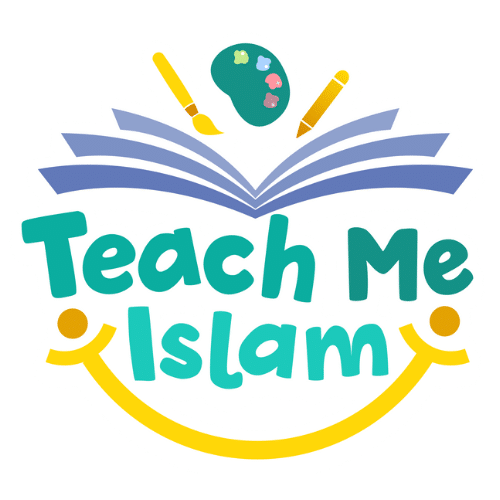Emotional intelligence has become a bit of a buzzword — it sounds complex, but at its heart, it simply means being able to recognise, understand, express, and manage emotions. For Muslim children, this isn’t just a nice skill to have — it’s essential for nurturing sincerity in their relationship with Allah.
Allah says:
“Indeed, my prayer, my sacrifice, my living and my dying are for Allah, Lord of the worlds. He has no partner. With this I have been commanded, and I am the first of the Muslims.”
(Al-Anʿām 6:162–163)
To live with ikhlās — sincerity — children need to learn how to look inward: to recognise the pull of pride, fear, jealousy, or insecurity. They need to be able to pause and ask themselves, “Why am I doing this?” That level of awareness doesn’t come from instructions alone — it’s nurtured through reflection. And this is where stories — especially the Islamic stories for kids found in the Qur’an and Sunnah — can play a powerful role.
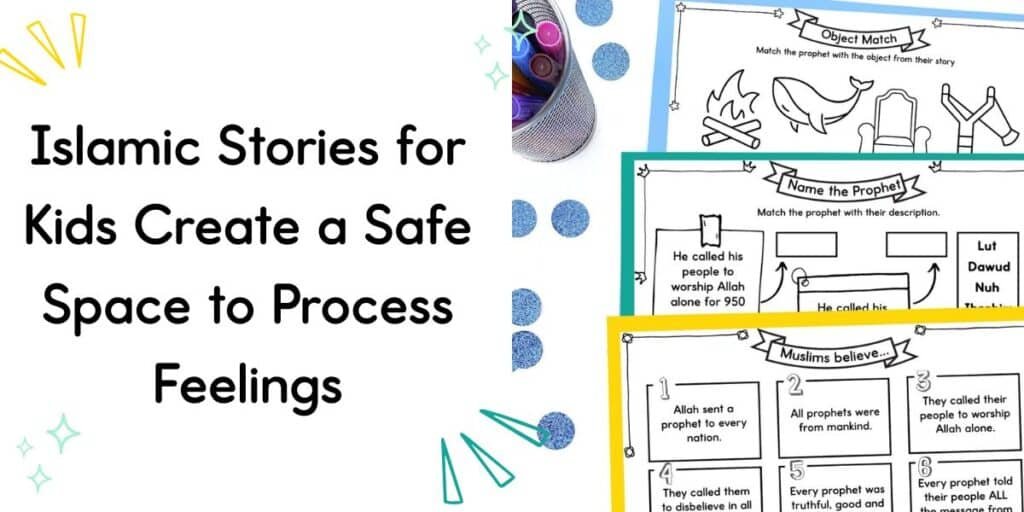
1. Islamic Stories for Kids Create a Safe Space to Process Feelings
“Children’s narratives provide a way to symbolically explore personal experiences and emotions in a safe, indirect way.”
— Norris et al. (2012), Journal of Child Psychology and Psychiatry
Islamic stories for kids help children make sense of their emotions through the lens of character experiences. Have you ever noticed how at home, all the answers on quiz shows seem obvious? Or how it’s easier to solve a friend’s problem than your own? That’s because when we’re not emotionally involved, we think more clearly.
Children may feel confused about their own feelings, but they often understand them better when mirrored in a story. That’s why there are so many books about children’s firsts — like visiting the dentist or starting school. The slight distance from the character’s struggle makes it easier for children to talk about their own feelings safely.
When a child hears about how Prophet Yūnus felt regret, they may relate to their own mistakes — but without the shame. The stories of the Prophets are especially powerful examples, filled with emotional depth and real-life challenges.
Storytime is also typically a safe and comforting part of the day. There’s no pressure to “get it right,” just connection and conversation. That makes it an ideal moment for gently discussing complex emotions.
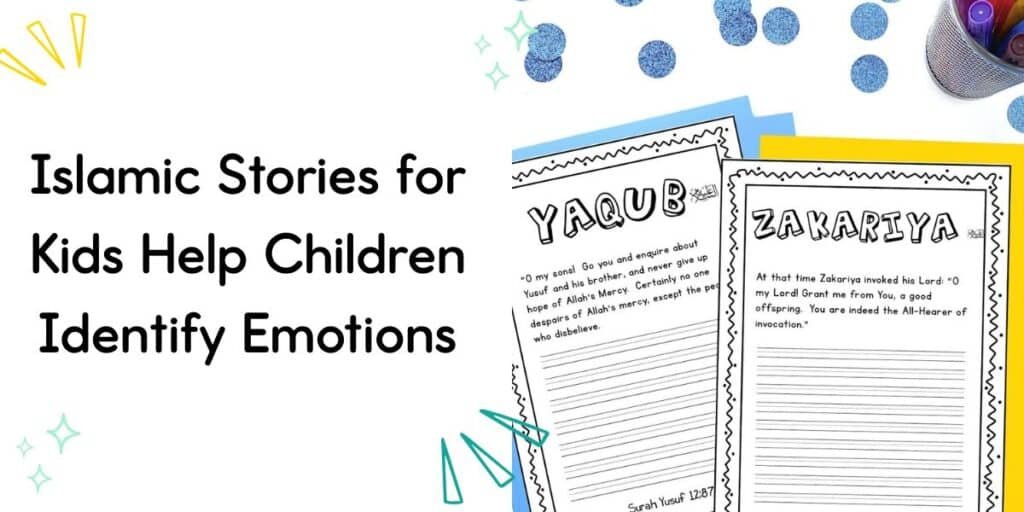
2. Islamic Stories for Kids Help Children Identify Emotions
“Through storytelling, children learn the names of emotions and associate them with facial expressions, behaviors, and situations.”
— Calvert & Kotler (2003), Journal of Applied Developmental Psychology
The stories in the Qur’an are full of emotion: Yaʿqūb grieved for Yūsuf, Mūsā felt fear returning to confront Firʿawn, and Yūsuf’s brothers were driven by jealousy. These emotional moments help children name what they’re feeling — and understand what emotions look like in practice.
They also show the complexity of emotions. Yūsuf’s journey, for example, includes betrayal, sorrow, hope, and forgiveness. Stories like his help children develop emotional vocabulary and the ability to hold multiple feelings at once.
Maybe your child is jealous that their sibling learns Qur’an more easily — but still happy for them. Islamic stories for kids give us language for that too: we can help our children see that it’s okay to admire someone’s blessing and wish for it, so long as we don’t want it taken away from them. We ask Allah to bless them — and to give us the same, with a heart free from envy.
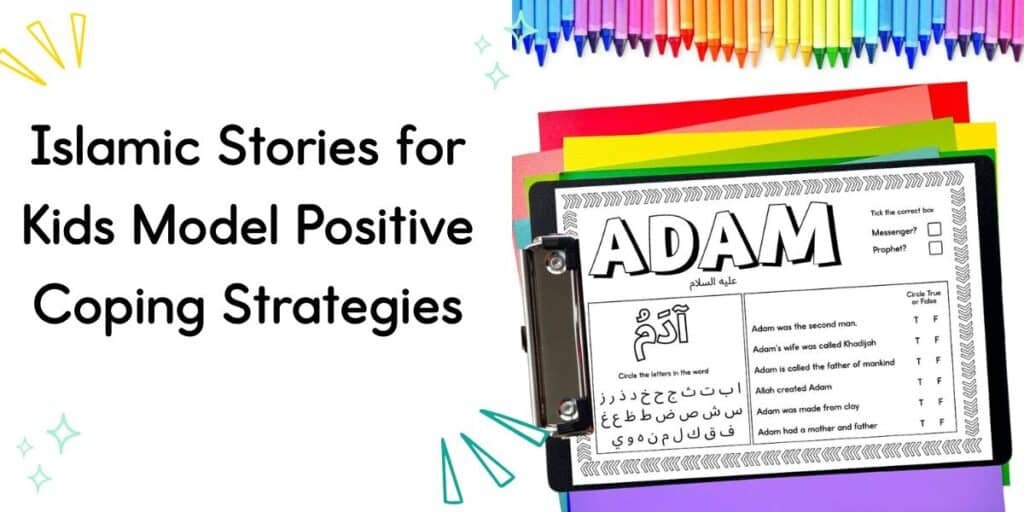
3. Islamic Stories for Kids Model Positive Coping Strategies
“Hearing stories of resilience helps children develop coping frameworks for their own emotional regulation.”
— Mallan (2013), Storytelling in Child Development
Islamic stories for kids show children what to do when life gets hard. They see Yūnus turning to Allah from the belly of the whale. Zakariyyā asking for a child when all seemed lost. Mūsā standing at the sea, trapped — yet relying fully on Allah.
They learn that Nūḥ gave daʿwah for 950 years and remained patient. That Ibrāhīm called his father to Islam kindly, even when rejected. That the Prophets responded with shukr, ṣabr, and duʿā in every challenge they faced.
Perhaps most importantly, they show how to handle mistakes. When Ādam felt regret, he didn’t hide or deny it — he made tawbah. This teaches our children that repentance is always possible, and that Allah is always near.
The sīrah of the Prophet ﷺ is also full of examples of emotional resilience — including how he asked for advice and turned to his companions. These stories normalise vulnerability, discussion, and seeking support.
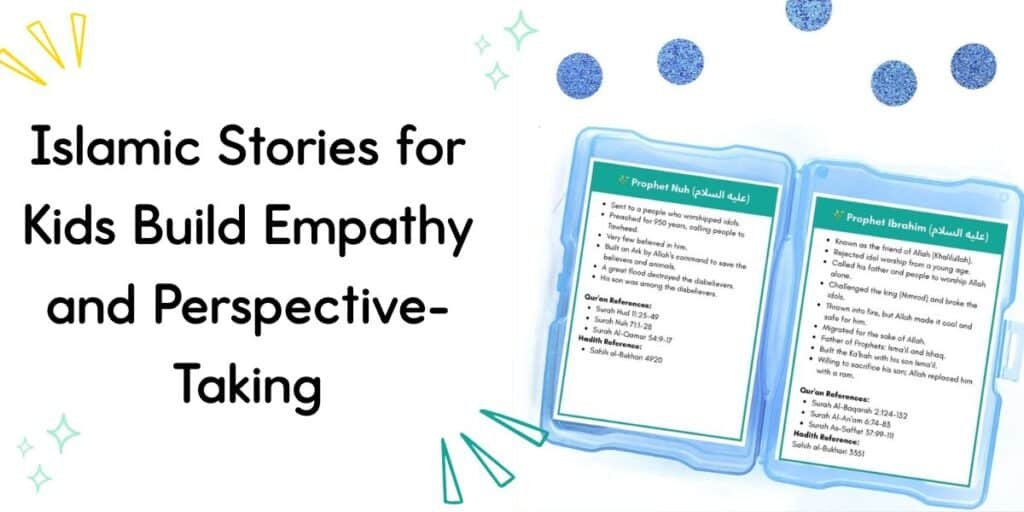
4. Islamic Stories for Kids Build Empathy and Perspective-Taking
Stories allow children to step into someone else’s shoes.
When they hear about Prophet Yūsuf being falsely accused, or Prophet Lūṭ surrounded by people committing sins, they begin to understand what others may feel — even if they’ve never experienced it themselves.
This builds empathy — a core part of emotional intelligence. It helps children connect not only with family and friends, but with the wider ummah. Through Islamic stories for kids, they learn that compassion isn’t just a feeling — it’s a value rooted in our dīn.
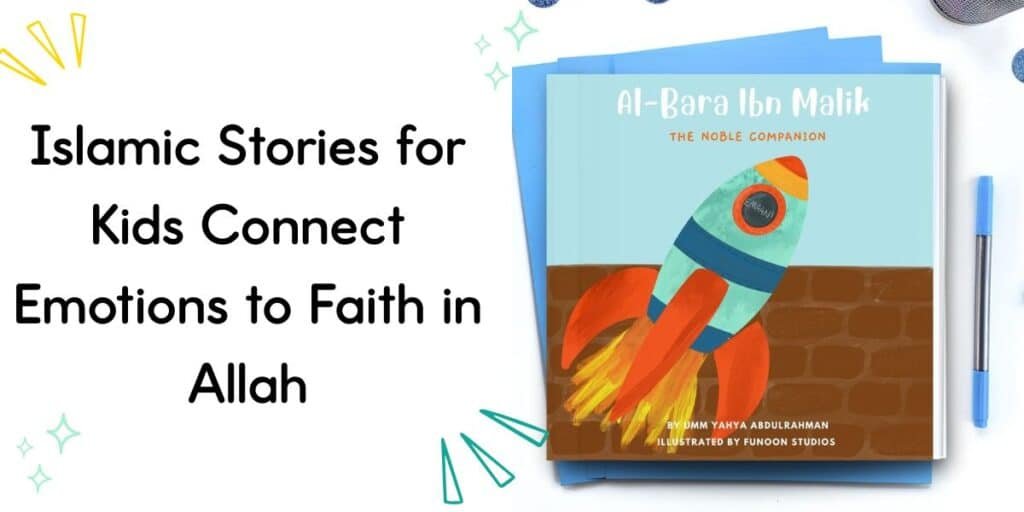
5. Islamic Stories for Kids Connect Emotions to Faith in Allah
Through the stories of the Prophets, children learn that fear, sadness, and hardship are not signs of failure. They’re part of life’s tests — and the Qur’an shows us how the Prophets responded with tawakkul, ṣabr, and duʿā.
Shaykh ʿAbd al-Raḥmān al-Saʿdī (رحمه الله) wrote:
“Truly, the person who relies solely on Allāh possesses a strengthened heart. Thus, he is not overtly affected by worry, nor is he annoyed by hardship… His worry and stress dissipate, hardship turns to ease, sadness turns to happiness, and fear turns to safety.”
📖 Al-Wasāʾil al-Mufīdah li-al-Ḥayāt al-Saʿīdah, p. 44
The Qur’an is full of examples:
- Mūsā facing Firʿawn with courage
- Ādam repenting after his mistake
- Ayyūb enduring pain without complaint
- Yūnus calling out from the darkness
Each one teaches our children that when emotions feel overwhelming, the answer is not to suppress them — but to turn to Allah with sincerity and trust.
One wonderful way to bring this lesson to life for your child is through books like Al-Bara Ibn Malik: The Noble Companion. This beautifully illustrated picture book tells the story of a brave and sincere young companion who put his trust in Allah during moments of fear and hardship. It’s a great reminder for children that real strength comes not from ourselves, but from relying on our Lord.
By internalising this, children grow up with hearts that are not dependent on praise or performance — but are rooted in īmān.
“And whoever relies upon Allah — then He is sufficient for him.”
(Al-Ṭalāq 65:3)
Nurturing the Heart Through Islamic Stories for Kids
Helping our children grow in emotional intelligence isn’t about turning them into mini psychologists or teaching them to label every feeling. It’s about giving them the tools to understand themselves, to respond with sincerity, and to see their emotions through the lens of īmān.
Islamic stories for kids offer timeless, relatable examples of how to handle joy, grief, anger, fear, regret, and hope — all with hearts that turn to Allah.
Whether it’s Yūnus calling out from the whale:
“There is no deity except You. Glory be to You! Indeed, I have been of the wrongdoers.”
(Al-Anbiyāʾ 21:87)
Zakariyyā’s duʿā:
“My Lord, do not leave me alone [childless], though You are the best of inheritors.”
(Al-Anbiyāʾ 21:89)
Or the Prophet Muḥammad ﷺ choosing mercy after being rejected at Ṭā’if:
“No, rather I hope that Allah will bring from their descendants people who will worship Him alone without associating anything with Him.”
(Ṣaḥīḥ al-Bukhārī 3231)
Our children learn that there is no feeling too heavy, no mistake too big, and no moment too hard to bring to Allah.
“Verily, in the remembrance of Allah do hearts find rest.”
(Ar-Raʿd 13:28)
In a world that often tells children to follow their feelings without question, Islamic storytelling offers a better path: one where they pause, reflect, and return to Allah — with hearts that are soft, steady, and sincere.
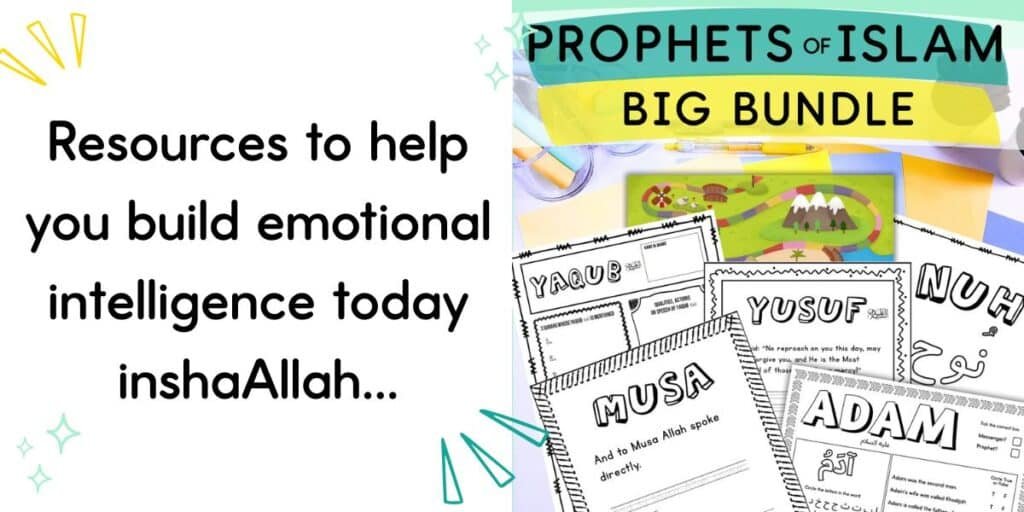
Looking for a Gentle Way to Begin These Conversations?
If you’re ready to bring these lessons to life in your homeschool or classroom, my Prophets of Islam resource is a great place to start.
This printable pack was thoughtfully designed to help children connect with the Prophets through engaging Islamic stories for kids, hands-on activities, and reflection exercises — all rooted in Qur’ān and authentic sources.
It includes:
- Simple, child-friendly pages for each Prophet
- Review pages to explore virtues and lessons
- Parent cards to support meaningful discussions
- A fun, low-prep board game
- Two levels of copywork and activity pages
Perfect for creating quiet, meaningful moments where your child not only learns the names of the Prophets — but also begins to understand their hearts.
🟢 Check it out here:
👉 Prophets of Islam on Teachers Pay Teachers





